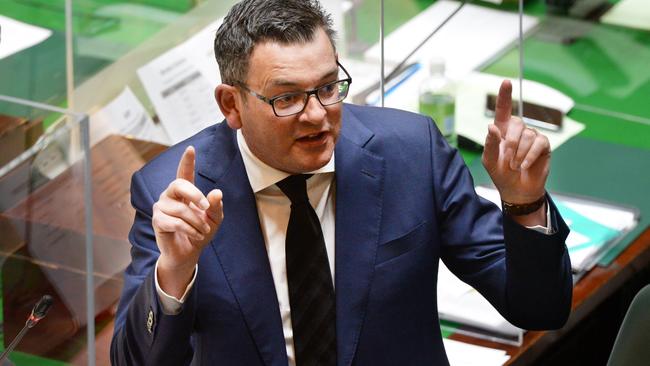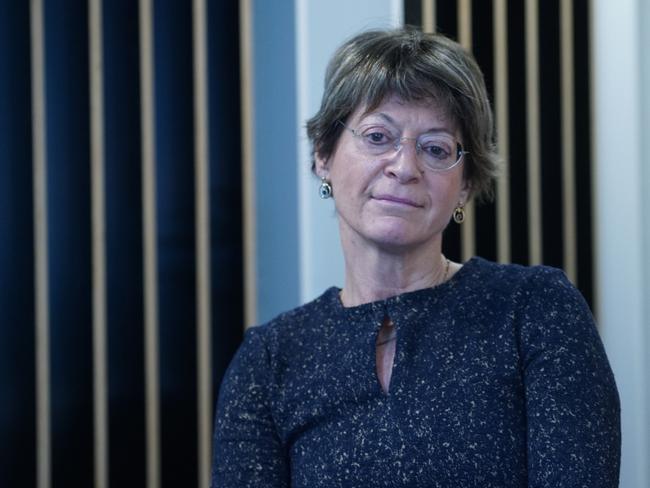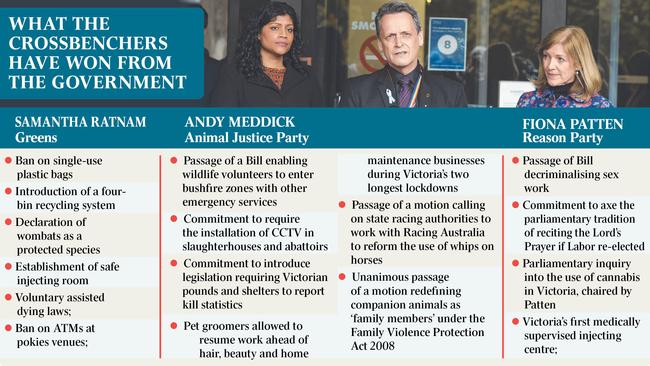‘Unchecked power’ Bill remains flawed despite concessions
Legal and human rights experts say the Andrews government’s pandemic legislation remains flawed.

A coalition of legal experts including Victoria’s Ombudsman and Bar president say crossbench amendments to the Andrews government’s pandemic legislation fail to address key flaws that will see unchecked power granted to the premier and health minister.
The legislation was introduced to the state’s upper house on Tuesday after the government reached an agreement on a range of amendments late on Monday night with Animal Justice Party MP Andy Meddick, Reason Party MP Fiona Patten and Greens leader Samantha Ratnam.
It is expected to be debated on Thursday and Friday before passing with the support of the three crossbenchers.
Ombudsman Deborah Glass said under the Bill, Victorians could still be detained indefinitely without charge, with no right of appeal to a court.

While she currently has the power to review detention orders because they are made by a public servant – namely the chief health officer – that power will be transferred to the government-controlled scrutiny of acts and regulations committee under the new legislation.
“There is a role for parliamentary committees, certainly a role for the scrutiny committee, but it’s not enough in my view, and I think concerns have been rightly expressed right around the legal community, in relation to the need for a greater level of independent oversight,” Ms Glass said.
The amendments agreed upon by the government and crossbenchers include the halving of fines for not complying with a pandemic order, adding a “reasonable grounds” requirement for a premier’s declaration of a pandemic, reducing the reporting period for documents associated with pandemic orders from 14 days to seven, and a raft of measures crafted in response to concerns that the Bill as previously drafted enabled the government to make orders specific to “classes” of people based on characteristics such as political activity, sexuality, religion or age.
Ms Glass said the amendments had not addressed the need for a proper complaints mechanism. “I’ve also said I think there need to be proper provisions around standards for people in detention,” she said.

Newly elected Victorian Bar president Roisin Annesley QC said the amendments did not sufficiently protect the rule of law.
“The proposed amendments largely address low priority issues and not the most fundamental problems with the Bill,” Ms Annesley said.
“The major issues include the lack of effective parliamentary control over the (health) minister’s pandemic orders and the lack of provision for an independent review of authorised officers’ exercise of power.”
Ms Annesley said the Bar had made a detailed submission to both the Health Department and an expert reference group following a briefing on the Bill on November 3.
Amendments the Bar recommended in its submission included that the bill must be amended so that pandemic orders can be disallowed by either house of parliament without the need for an SARC recommendation, and that individuals who were detained must be able to seek a merits review of their detention by an independent court.
“Internal review by a person who is employed by the Department of Health is not an acceptable independent safeguard,” Ms Annesley said.
Premier Daniel Andrews said the amendments were the product of “good faith negotiations” and “normal parliamentary processes … These arrangements are modelled on what happens in New Zealand, they’re modelled on what happens in NSW.”




To join the conversation, please log in. Don't have an account? Register
Join the conversation, you are commenting as Logout